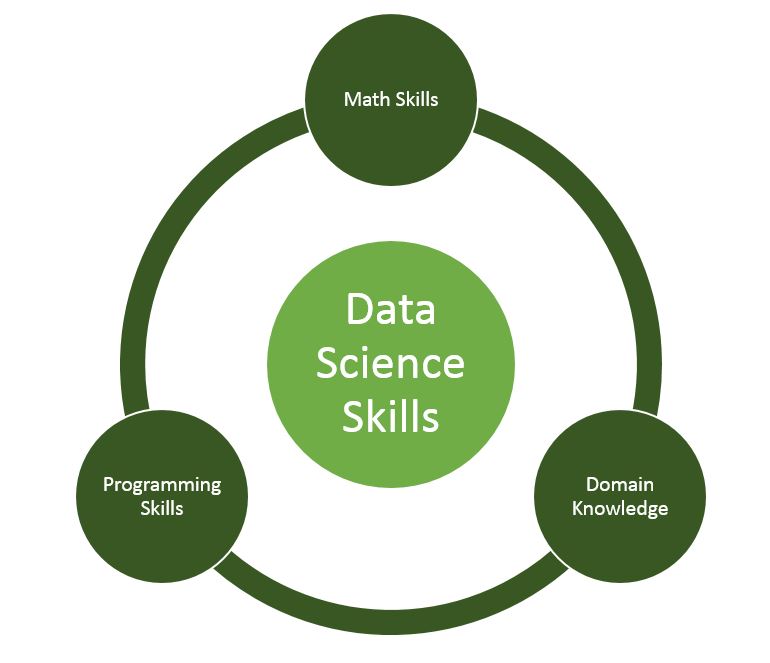Best Online MBA Programs: Rankings, Costs, Value & Placement for 2026
- January 6, 2026
- Education
TL;DR
- Online MBAs from UGC-approved Indian universities are valid and increasingly accepted in 2026.
- Popular options include NMIMS… Read More

Data science integrates mathematics, statistics, artificial intelligence, and computer science to process extensive datasets, identifying patterns and trends. These insights enable organizations to gain deeper insights into causality and enhance their decision-making processes.
Through techniques like data visualizations and predictive analytics, data science enables thorough analysis of large datasets and facilitates trend identification. Its applications span diverse fields, such as disease diagnosis, malware detection, and transportation route optimization.
Data science professionals are well-compensated for their advanced technical skills and have lucrative job prospects across various industries, from large corporations to startups. Those with significant experience and education can excel in innovative global enterprises.
Specializing in data science further distinguishes professionals. For instance, machine learning experts leverage advanced programming to develop algorithms that enhance prediction accuracy by continuously adapting to new data.
Build profound expertise in PG in Data Science, which is essential for professionals looking to stay competitive in today’s data-driven world. These courses provide practical skills and theoretical knowledge necessary to analyze complex data sets, make informed decisions, and drive organizational success.
Fundamental Data Science Techniques for Effective Analysis
Data science techniques encompass several essential methods that professionals utilize to analyze and interpret data effectively. One prominent technique is regression analysis, which predicts outcomes based on multiple variables and their relationships, primarily through linear regression—a widely applied method in supervised learning.
Another crucial technique is classification, where data points are categorized or labelled. This facilitates tasks such as spam filtering in emails or sentiment analysis in texts. Like regression, classification falls under supervised learning, ensuring accurate predictions.
Clustering, a technique in unsupervised learning, groups closely related objects within datasets to uncover patterns, particularly in vast and unstructured data collections. Each cluster is assigned distinct characteristics, aiding in data exploration and segmentation.
Anomaly detection, or outlier detection, identifies data points with exceptional values, which is crucial in industries like finance and cybersecurity to flag irregular activities or potential threats.
These techniques form the backbone of data science, enabling professionals to extract insights, make informed decisions, and drive innovations across various domains.
Understanding Data Science Tools
In the realm of data science, professionals rely heavily on a diverse array of tools and programming languages to derive meaningful insights and solutions from complex datasets. These tools and languages are instrumental in performing sophisticated analyses and developing advanced models that underpin modern data-driven decision-making processes.
R excels in creating visualizations, conducting statistical tests, and building statistical models. Its extensive library of packages tailored for data analysis and visualization makes it indispensable for researchers and analysts working with statistical data.
Apache Spark: Known for its high-speed data processing capabilities, Apache Spark is an open-source distributed computing system. Its ability to execute in-memory computing and fault tolerance makes it ideal for big data analytics projects where speed and scalability are critical.
SQL (Structured Query Language): It provides a standardized way to retrieve, insert, update, and delete data in databases such as MySQL, PostgreSQL, and SQLite. SQL’s versatility and efficiency in handling structured data make it indispensable for data engineers and analysts who work with relational databases.
Tableau: It allows users to explore data through interactive dashboards, charts, and graphs, facilitating data-driven decision-making across departments. Its intuitive interface and robust analytical capabilities make it a preferred choice for businesses seeking to visualize and explore their data effectively.
Apache Hadoop: Hadoop’s scalability, fault tolerance, and cost-effectiveness make it an indispensable tool for organizations dealing with large files, sensor data, and social media content.
TensorFlow and PyTorch: TensorFlow and PyTorch are two leading open-source libraries for machine learning and deep learning applications. TensorFlow, developed by Google, provides a comprehensive ecosystem of tools, libraries, and community resources for building and deploying machine learning models at scale. It supports a wide range of tasks, including neural networks, natural language processing (NLP), and image recognition. PyTorch, developed by Facebook’s AI Research lab (FAIR), offers a flexible framework for building and training deep neural networks. It is trendy for its dynamic computational graph and ease of use in prototyping deep learning models.
Choosing the Right Tool: Selecting the appropriate data science tool depends on several factors, including the nature of the problem, the specific requirements of the business or research project, and the expertise of the data science team.
Conclusion
By mastering data science, professionals can unlock new opportunities for career advancement, lead innovation within their industries, and contribute significantly to organizational growth and efficiency. Highly vetted programs such as the Data Science Course are carefully crafted for seasoned professionals who are upskilled in solving real-world challenges.
They are designed to empower participants with the skills needed to make informed, data-driven decisions, extract actionable insights, drive organizational growth, and propel their careers forward with a deep understanding of data science.
Participants can expect a rigorous curriculum that blends practical assignments with a theoretical curriculum to tackle complex issues in their respective fields. Through interactive sessions and case studies, they will learn to analyze large datasets, implement cutting-edge analytical techniques, and communicate findings effectively to stakeholders.
By mastering data science, professionals can unlock new opportunities for career advancement, lead innovation within their industries, and contribute significantly to organizational growth and efficiency.